Honoris Causa
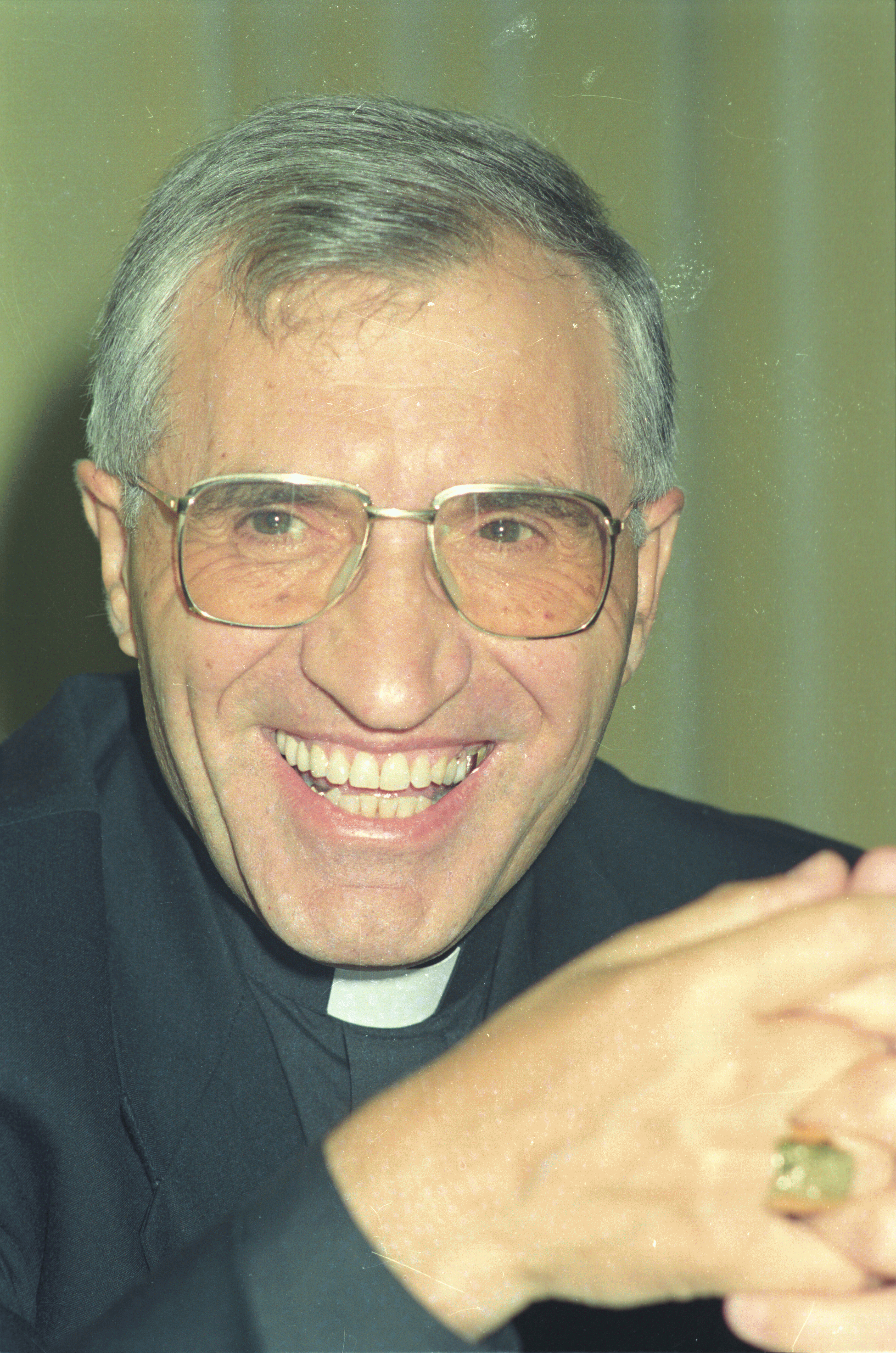
Antonio Mª Rouco
17/1/2003
Cardinal Antonio Mª Rouco graduated in Theology at the Pontifical University of Salamanca in 1958. He subsequently obtained a doctorate in Canon Law at the University of Munich.
Pope John Paul II appointed him archbishop of Santiago de Compostela (1984), archbishop of Madrid (1994) and cardinal (1998). He has also been a member of the Permanent Commission of the Spanish Episcopal Conference since 1984, and its president since 1999. He has published numerous books and scientific works in Spanish and foreign journals on the theological basis of Canon Law and the problems of Church-State relations.
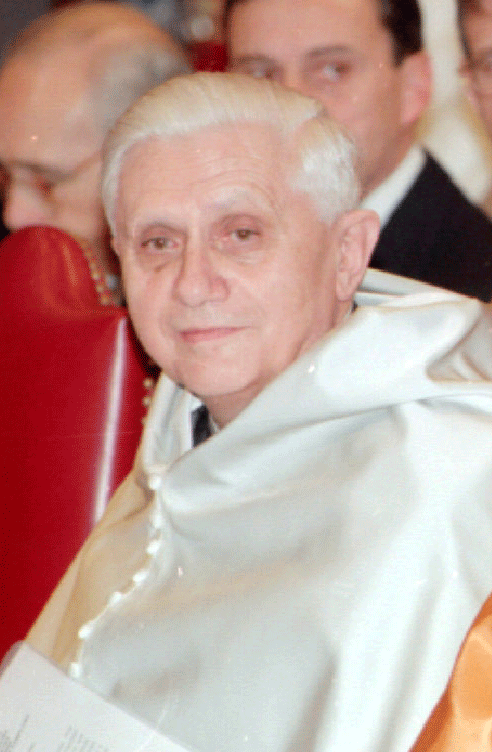
Joseph Ratzinger
31/1/1998
Cardinal Joseph Ratzinger, born in Marktl am Inn (Bavaria, Germany) 70 years ago, studied at technical school of Philosophy and Theology in Freising and at the University of Munich. Ordained a priest in 1951, he received his doctorate in theology two years later. From 1952, he was in charge of Dogmatics and Theology in Freising, and subsequently Full Professor in Bonn, Münster, Tübingen and Regensburg, where he was also Vice-President of that university.
In 1977 he was appointed Archbishop of Munich-Freising and in the same year he became a Cardinal under Paul VI. In 1981 John Paul II appointed him Prefect of the Congregation for the Doctrine of the Faith, and since then he has also been President of the International Theological Commission and of the Pontifical Biblical Commission. Since 1986, Cardinal Ratzinger has chaired the Commission responsible for drafting the Catechism of the Catholic Church.
His numerous publications include "The New People of God" and "Theory of Theological Principles". In addition, his contribution to questions of the relationship between Christianity and pluralistic society and his growing interest in the preaching of the faith and pastoral practice are particularly noteworthy. His works such as "Christian Brotherhood", "The Face of God" and "Servant of your Joy" are in this line.
In 2005, after the death of John Paul II, he was elected Pope under the name of Benedict XVI.
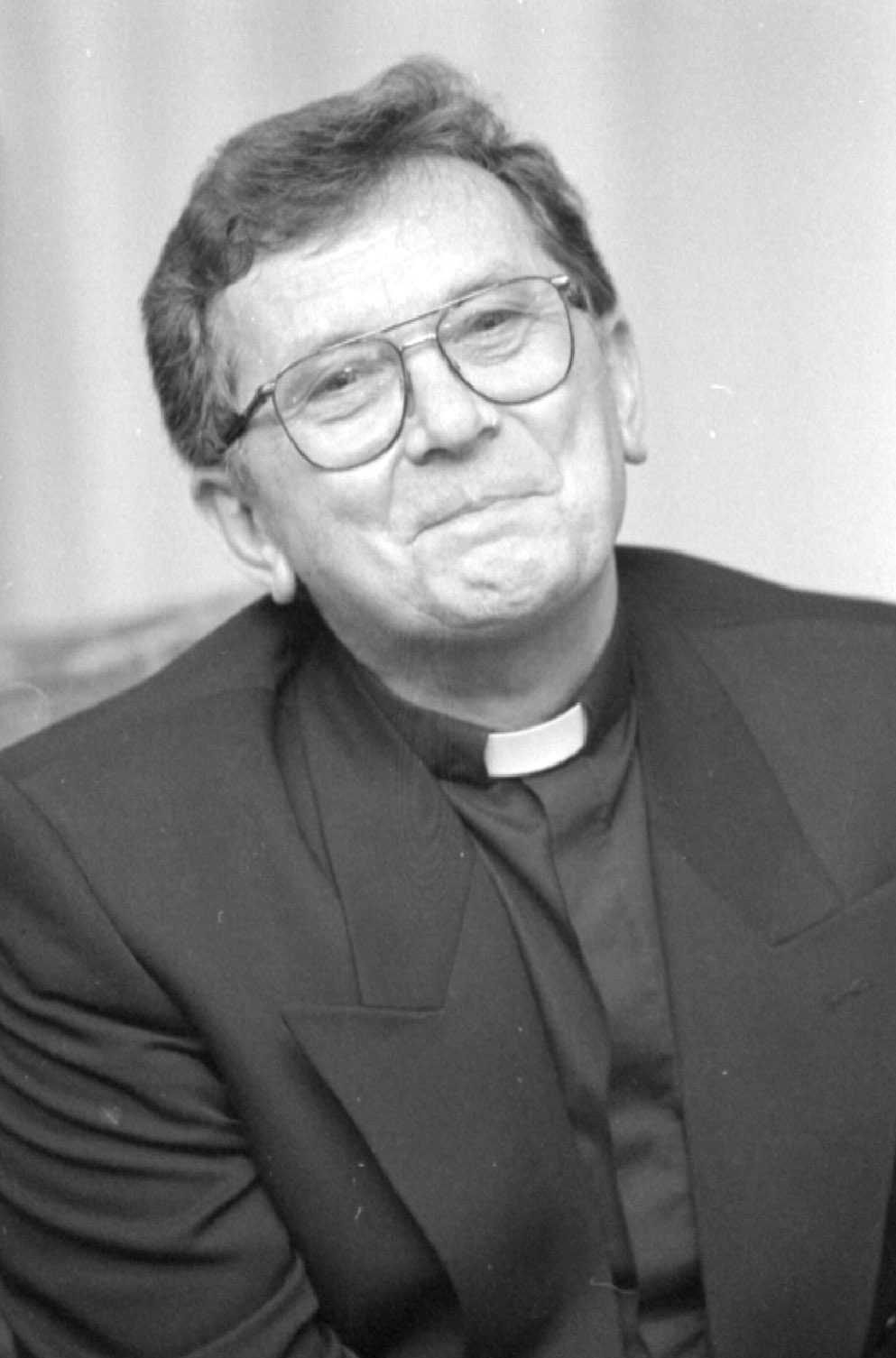
Tadeusz Styczen
29/1/1994
Tadeusz Styczen was born in 1931 in Wolowice, Poland. He attended a school belonging to the Society of the Divine Saviour, an order established in Poland in 1900, which he joined years later.
He studied at the School of Theology at the Jagiellonian University, where he attended Karol Wojtyla's lectures. He then followed him to the School of Philosophy at the Catholic University of Lublin. He was ordained a priest of the Congregation of the Divine Saviour in 1955. He began studying philosophy in the same year. Under the guidance of Karol Wojtyla, Styczen defended his thesis and obtained his habilitation in Ethics in 1971, receiving the title of professor in 1981. He was teaching assistant and professor at the department of Ethics at the Catholic University of Lublin.
As Karol Wojtyla took on new responsibilities, he delegated his lectures and seminars to Styczen. After Wojtyla's election as Pope in 1978, Tadeusz Styczen, one of his most brilliant students, officially succeeded him in the Chair with the title of Professor of Philosophy.
He was director of the journal "Ethos" (1988-2006) and founded the John Paul II Institute within the University of Lublin, being its director until 2006 and director honorary until his death.
He was a close friend of Pope John Paul II and accompanied him on several occasions during his holidays. He was partner of the encyclical "Veritatis Splendor", professor at several universities (among them the Pontifical Lateran University and the University of Navarra) and at the International Academy of Philosophy, in Liechtenstein; consultant of the Pontifical committee for the Family and of the Pontifical committee for the Pastoral Care of Health Care Workers, member of the Pontifical Academy for Life, since its creation in 1994; and honorary doctor of the University of Navarra and of the Pontifical Lateran University, in Rome.
He was one of the priests who assisted John Paul II in his last hours.
He died in October 2010, aged 79.
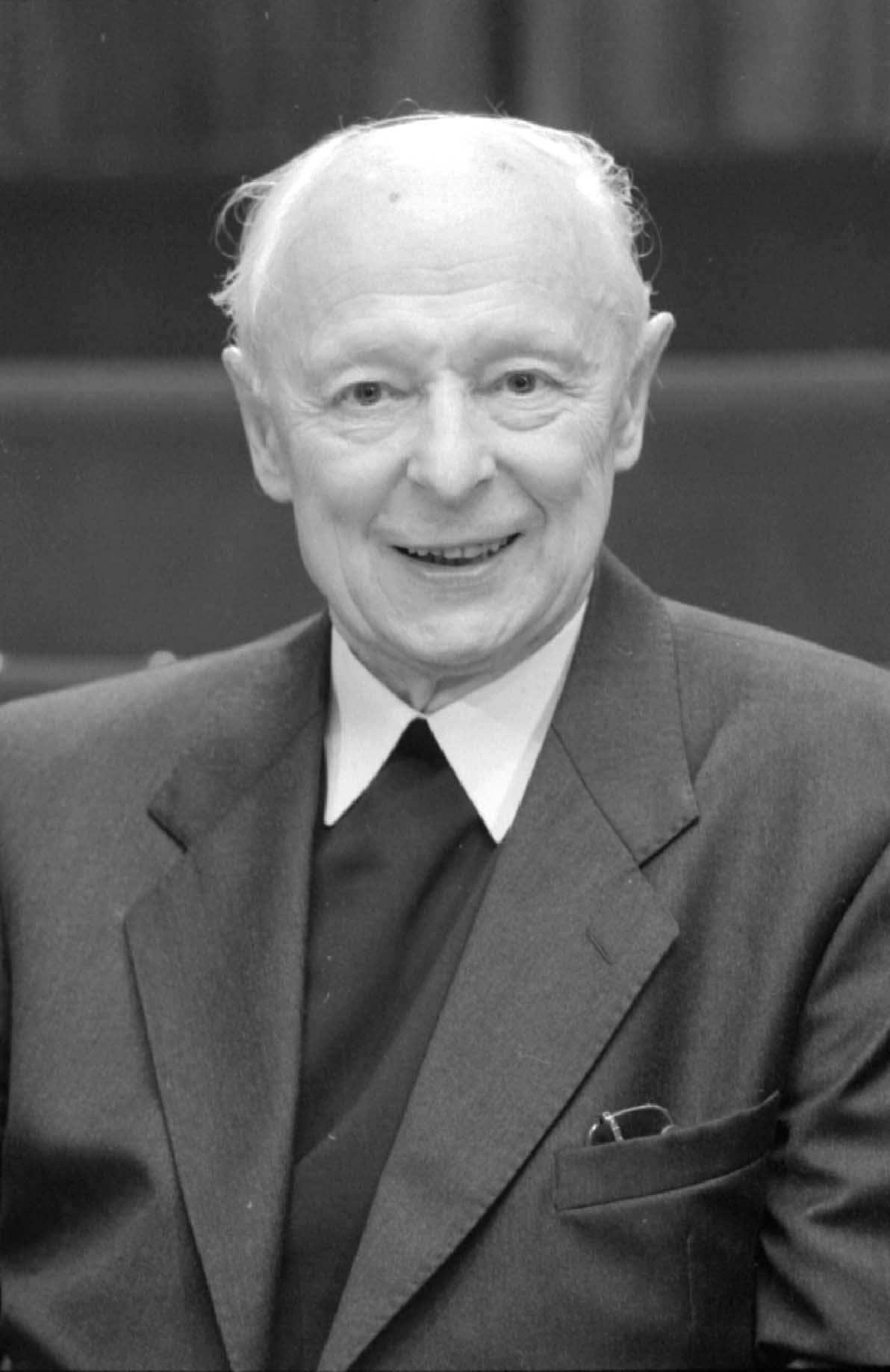
Leo Scheffczyk
29/1/1994
Born in 1920, Leo Scheffczyk's life was devoted to research and teaching theology at the universities of Tübingen and Munich, within the current of renewal that was forged in his country in the inter-war period.
He was a member, since 1973, of the Pontifical Marian Academy Internationalis and, since 1980, of the Bayerische Akademie der Wissenschaaften and the Academica Theologica Romana. He also served as consultant of the Pontifical committee for the Family and as domestic prelate of His Holiness. He was publisher for several years of the journal Münchener Theologische Zeologische Zeischrift and also founded the journal Forum Katholische Theologie.
Author of sixty monographs and several hundred articles, many of his books have been translated into Spanish, French, English and Italian. His research on Systematic Theology stands out, with a historical orientation aimed at understanding the development of dogma in the different epochs, especially in the period after the Second Vatican Council.
In 1978 he was appointed Prelate of Honour of His Holiness, and in 2001 he was created Cardinal by John Paul II.
He died in Munich on 8 December 2005.
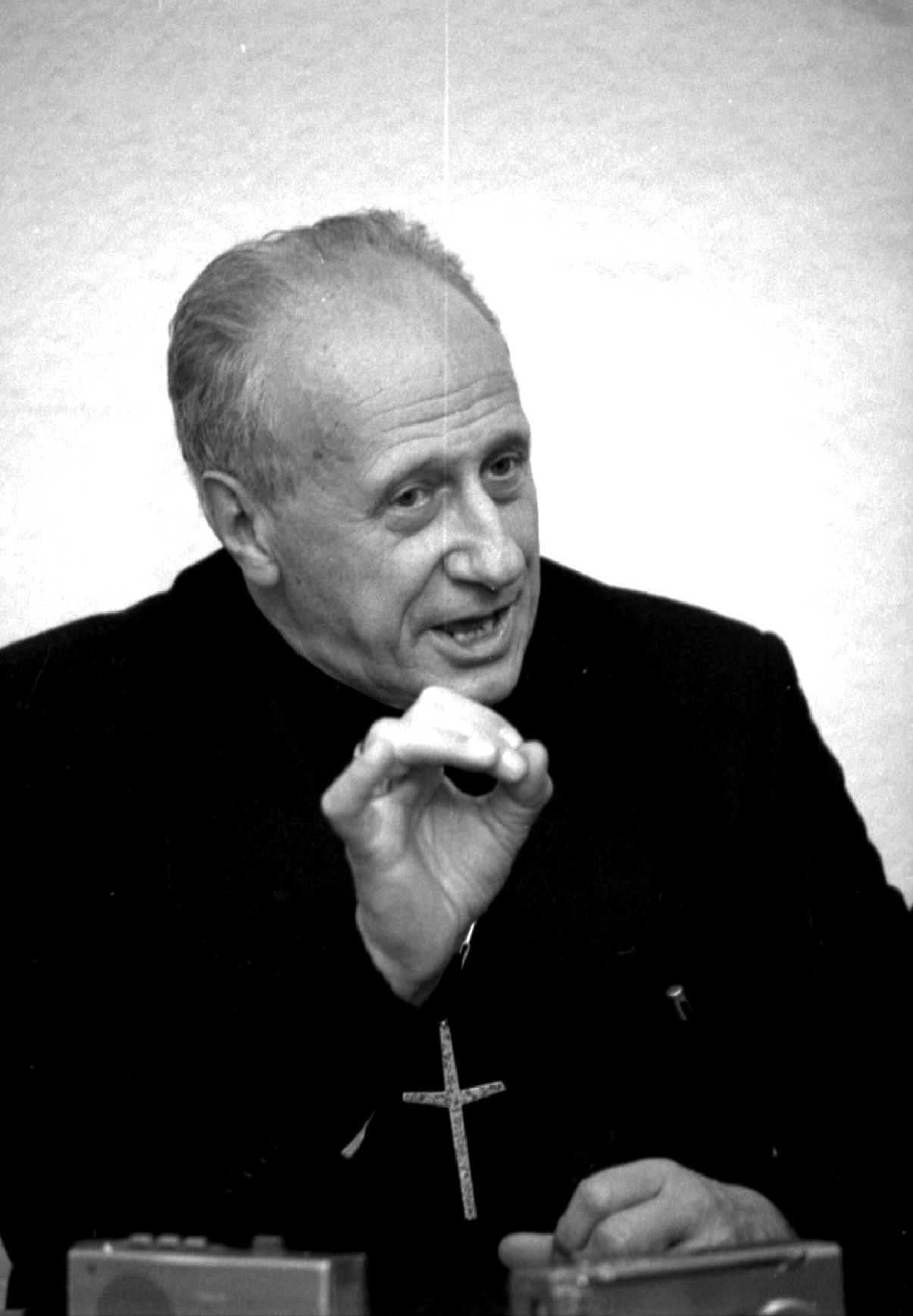
Roger Etchegaray
21/1/1989
Born in Espelette (France) in 1922. After studying at the minor seminar in Ustaritz, he continued his scientific and spiritual preparation at the major seminar in Bayonne and at the Pontifical Gregorian University in Rome, where he obtained the licentiate degree at Sacred Theology and the doctorate at Canon Law.
Ordained a priest on 13 July 1947, he began his pastoral ministry, first in his native diocese of Bayonne, before becoming, in 1961, Deputy Director of the Secretariat of the French Episcopate, and becoming involved, at the same time, in the creation of a secretariat for pastoral care. From 1966 to 1970, he held the position of University Secretary of the French episcopate, before becoming titular bishop of Gemelle di Numidia and auxiliary bishop of Paris in 1969. In 1970, he became Archbishop of Marseille (until 1984) and in 1975 he succeeded Cardinal Marty as president of the French Episcopal Conference. He was re-elected in 1978 (until 1981). From 1975 to 1982, he was also prelate of the "Mission de France".
From 1965, the year of the closing of the Second Vatican Council, he was secretary of the Committee of link of the Bishops' Conferences of Europe, and in 1971 he became the first president of the new European committee of the Bishops' Conferences. He was re-elected to the position in 1975 (until 1979). He was also one of the main promoters of the European ecumenical meeting in Chantilly.
He participated in the work of the Synod of Bishops and was, in 1974, a member of the committee of the Synod Secretariat.
On 8 April 1984 he was called to Rome and appointed President of the Pontifical committee for Justice and Peace (where he remained until 1998) and President of the Pontifical committee Cor Unum (where he remained until 1995). Over the years, Cardinal Etchegaray has always carried out tireless service for peace, human rights and the needs of the poor, bringing the Pope's message and love to many nations.
He was created and proclaimed a cardinal by John Paul II in 1979. In 2005, Benedict XVI approved his election as Associate Dean of the high school of Cardinals.
He is a member of the French Academy of Moral and Political Sciences and of the Pontifical Academy of Social Sciences.
In 2002 he was appointed Officer of the Legion of Honour. In 2003 he was awarded the "Raoul Follereau" peace prize award and in 2004 the UNESCO Peace Prize award .
Franz Hengsbach
9/5/1974
The German Cardinal Franz Hengsbach studied at the seminaries in Paderborn and Freiburg. In 1944 he received his doctorate in theology from the University of Munich.
He was ordained a priest in 1937. From 1948 to 1958 he was director of the pastoral office in Paderborn. In 1952 he was appointed Domestic Prelate of His Holiness and University Secretary of the Central Committee of German Catholics. In 1953 he was appointed auxiliary bishop of Paderborn and titular bishop of Cantanus by Pope Pius XI; and in 1958, bishop of Essen.
He founded Adveniat, an organisation of the German episcopate to help the Catholic Church in Latin America.
From 1962 to 1965, he attended the Second Vatican Council. He was appointed chairman of the German Bishops' Commission for Universal Church Affairs in 1976. He was appointed member of the committee of the European Bishops' Conference in 1977.
Pope John Paul II created him a cardinal in 1988. He died at the age of 80 and is buried in the crypt of Essen Cathedral.
CONTACT
faces@unav.esEdif. Schools Eclesiasticas
University of Navarra
31009 Pamplona, Spain
+34 948 425 600 Ext. 802611
Fax: +34 948 425 622
